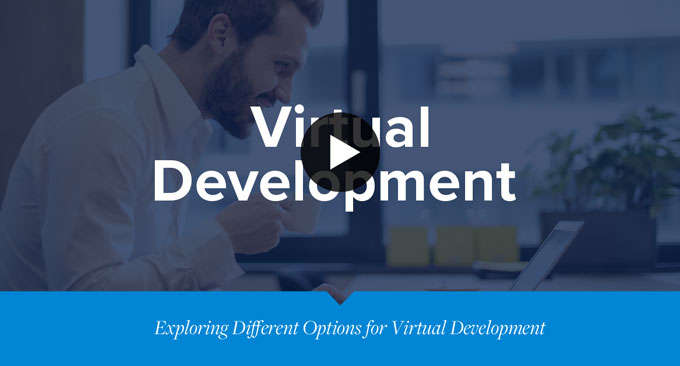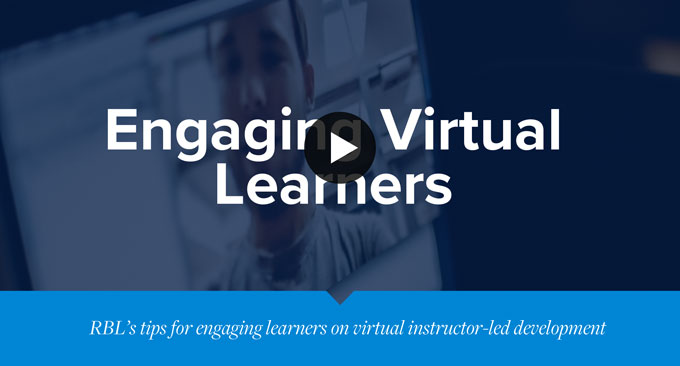HR Business Partners (HRBP): Emerge Successfully After COVID-19
As Human Resources Business Partners (HRBPs) help their organizations respond during this tenuous time, there are many angles to consider. We asked RBL Principals Jessica Johnson and Jade White for their thoughts on what HR Business Partners can do right now to help their organizations come out stronger from the COVID-19 crisis. Together they have consulted, coached, and trained HR leaders in businesses around the world for over 25 years on how to build outside-in, business focused capabilities.

HR Business Partners (HRBP): Emerge Successfully After COVID-19

Related Insights
Q: What’s most important for HRBPs to deliver business value in these challenging times?
Jessica: HR’s role is critical because a crisis like COVID-19 can magnify leadership actions and leave unsavory memories if they are not handled well. HRBPs can help leaders recognize that this pandemic is exacerbating the many paradoxes we find in our organizations:
- Serving customers and caring for employees
- Reducing cost and preparing for future growth
- Recognizing complexity and delivering simple solutions
- Or add your own…
In our research and experience, we’ve learned that HR’s greatest contribution to the success of a business comes by helping navigate these types of paradoxes. It’s not choosing one side or the other—both are important. Instead HR can help leaders balance the two extremes instead of managing to one agenda.
To do this well, HRBPs must build trust, have the courage to delve into the details with leaders, and consider and address the needs and expectations of a variety of stakeholders.
Jade: As Jessica said, HRBPs navigating the heightened extremes of paradox will be a primary driver of value for organizations and their employees. One such paradox will be the pulls of work and home. Work-life balance has been a popular topic of books, articles and conferences in recent years, but takes on a different context now. We are facing a phased, post-COVID-19 return to normal that in most regions includes the high probability of future flare-ups and rolling travel restrictions even after the virus has been contained until the widespread availability of a vaccine or cure.
This means organizations will need to be incredibly agile in maintaining continuity in the market, while also remaining sensitive to the variety of situations their employees are facing (kids at home, disruptions in travel, anxiety and mental stress of workers, etc.)
HRBPs are uniquely positioned to be the eyes, ears and (most importantly) the heart of the organization. They can advise leaders on the probable impacts of a dynamically shifting workforce, and develop alternative workforce planning strategies to address multiple scenarios.
Q: What do HRBPs need to be able to help their businesses transition to a post-COVID-19 environment?
Jessica: This global pandemic is affecting different organizations differently. But as a general rule, I think we shouldn’t expect that we’ll go back to our old understanding of “normal.” HRBPs can help the leaders they work with prepare and discuss scenarios for the next steps in recovery. E.g. Will our definition of work as a “place” change for our organization? What’s the general sentiment from stakeholders who have opposed work from home options previously? What impact have we seen on productivity?
HRBPs that can facilitate useful conversations as well as support them with meaningful, expert data can help the organization work through the ambiguity to create a plan for the future. Too often we get caught up in the here and now, and fail to plan for the future. The next horizon is not yet upon us and HR has a great opportunity to help chart the course.
Jade: I agree that any definition of “normal” cannot be rooted in a pre-COVID-19 reality. We are fundamentally changed. And while the tragedy of a global pandemic is nothing to make light of, there are some important immediate and longer-term considerations for HRBPs to best transition post-COVID-19.
Immediate: Employee trust in government, organizations and even their co-workers has been shaken. In times of social-distancing, did your organization do things for employees or to employees? From their perspective, not yours. For HR professionals: Can you accurately gauge levels of trust of employees coming back to work, and develop actions to address/enhance that trust? RBL has a human resources assessment, along with virtual and in-person programs designed to address trust. But even if you use a different method, don’t underestimate the shaken trust of employees returning to full levels of work. Identifying, acknowledging and addressing the factors early will help retain and engage your employee base.
Longer Term: This global pandemic has likely changed the way customers will buy, regardless of industry. How products are purchased, sourcing strategies for raw materials, hygiene rules, facility layouts and density rules, etc. will all be under review. HRBPs need to proactively dive into these macro realities to ensure competitive advantage and customer intimacy, while also connecting to the internally driven opportunities that have challenged some organizational biases of the past. Can all/most of your workers work from home? Can meetings, training programs, product development, sales, etc. be done entirely virtually? Can our systems handle the bandwidth of everyone being online at one time? Can we maintain the culture of an organization, without being physically together?
HRBPs now have the ultimate business case to show what can, what could (if adapted), and what should not be done, given that many of those biases have been tested on a broad scale. Missing the opportunity to capture those learnings, and adapting the organizational mindset and designs to address a future reality and/or disruption would be a huge mistake.
Q: What competencies do HRBPs need to develop or enhance so they can be positioned to support these transitions?
Jessica: HRBPs are in a unique position in the organization where they have so much information—they are truly experts on the organization due to what they see outside and inside—yet their influence largely has to be made without authority. To be able to influence in this way, HR partners need strong business acumen, they must build relationships of trust with leaders, have deep curiosity to go beyond the presenting problem to the real underlying symptoms, and drive toward solutions that lead to the results stakeholders expect.
Jade: Agility will be tested unlike any other time. Strategic Agility (and mix of RBL’s Strategic Positioner and Paradox Navigator HR competencies) will be hard to keep top of mind, at times, in the near-term because of all of the immediately urgent pressures. However, monitoring what’s happening Outside (Market: Investors, Customers, Government Regulations, the Community, etc.) needs to influence and translate to employee actions Inside. These actions will likely change at rates never before experienced: Products made and prioritized; Employee turnover rates; Privacy policies with medical information; Radically different policies by country; Creative employee incentive plans, etc. All of these items will spotlight Agility for HRBPs, as a significant driver for providing invaluable impact.
Q: How can RBL help?
Jessica: We have a virtual academy ready for the HRBPs in your organization that addresses the competencies mentioned above. We can help enhance existing skills, shore-up areas where there may be weakness, or participants may even need to unlearn some things to be able to provide the best value they can for your organization.
The program we offer focuses on the three critical components of HRBP success: managing yourself, managing stakeholders, and managing the work. Through virtual video cases, practical applications, and skill-building exercises, participants will improve their ability to help business leaders solve the problems that get in the way of delivering results.
Jade: RBL’s Dave Ulrich coined the concept of Business Partner as it relates to HR, back in the book HR Champions. It has perhaps never mattered more than now. As Jessica noted, we have a variety of ways to accelerate the development of (or even re-position) your HR professionals for leading the post-COVID transition. Our Outside-In approach and mindset, keeps people focused on delivering value for all stakeholders (inside and outside the organization). Our virtual delivery flexibility, enables that learning to happen – right now.
Q: How is development by RBL different than other virtual providers?
Jessica: RBL experiences are quite different from virtual training experiences you’ve probably had in the past—we call it virtual instructor led development (VILD). We bring our expert content—refined through decades of research and practical experience—as well as skilled and experienced facilitators to guide discussions tailored to what is happening inside your organization, right now. This is not off-the-shelf training, and participants are not passive. We keep the cohorts small enough so all stay engaged in the discussion and we work issues the HRBPs are challenged with, together.
Jade: Our virtual offerings are still powered by the research and content that has made RBL the global leader in Strategic HR competencies and capability development. We have been adapting our content and approach over the past 5+ years to offer a robust, virtual learning experience for some of the world’s leading companies. RBL’s signature offering (VILD), combines the flexibility of independent virtual learning with the power of facilitated small group discussions and coaching with topical thought-leaders. Therefore, this isn’t a mass-produced info-share for someone to tune into while working on other things, hidden amongst 100+ participants. Our VILD’s are “Facilitator Led. Participant Owned.”, meaning this is a true dialogue amongst people who are interested in sharing and learning from each other to both advance the profession of HR and immediately deliver value for their organization.
Q: What benefits can your organization expect?
Jessica: With the right perspective and tools gathered in this virtual academy, HRBPs can overcome the pull towards being a pair of hands. With the right mindset and skillset, these consultants to the business will initiate and facilitate processes that solve pressing problems, help the organization be more agile, and help their business deliver results.
Jade: What she said!
RBL is prepared to work virtually with your organization’s HR Leadership Team (HRLT), HRBPs and HR professionals at every level to ensure you are coming out of COVID-19 stronger. Find more information about Strategic HR development and Virtual Instructor-Led Development on our website, or contact us directly to discuss specific strategies.

